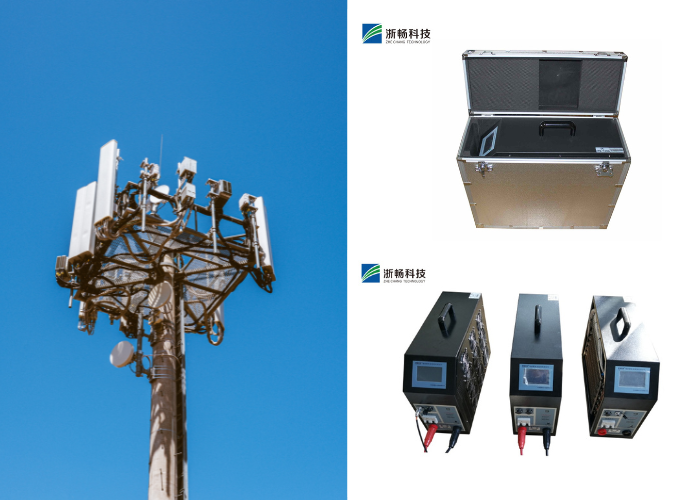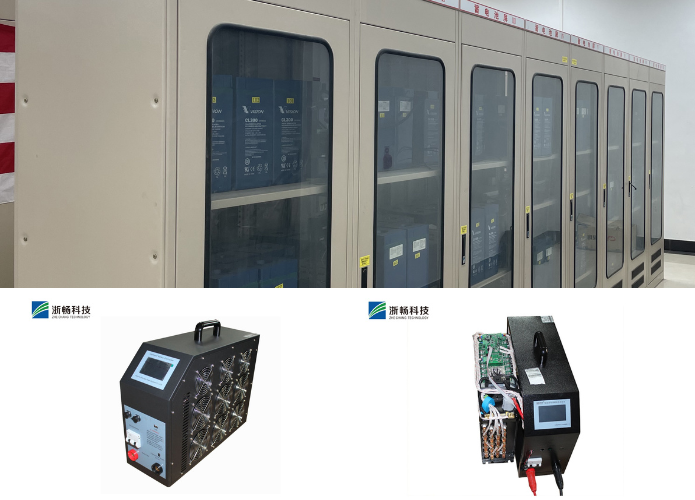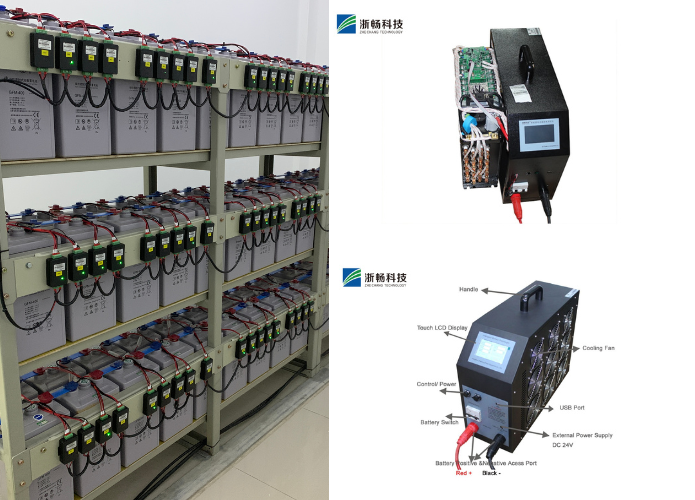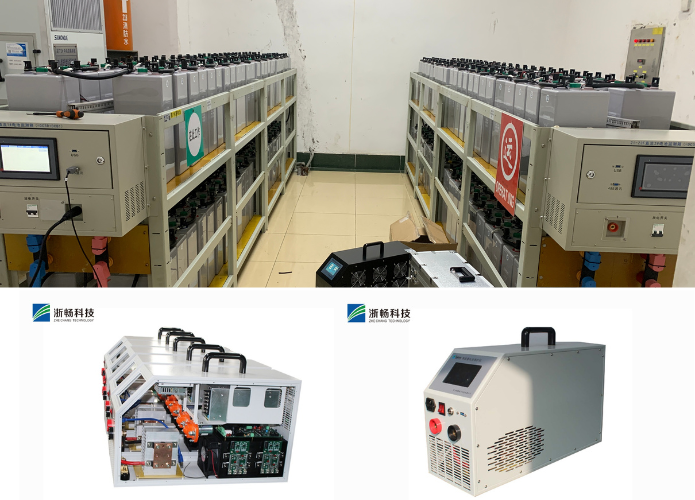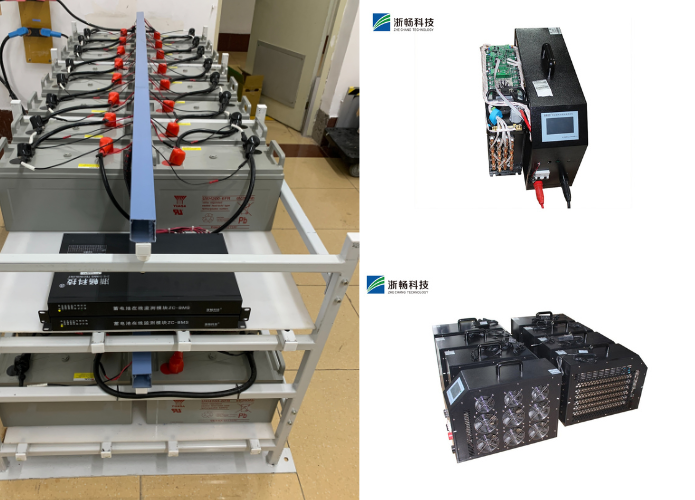What Does a Battery Analyzer Do?
What is a Battery Analyzer?
A battery analyzer is a sophisticated and indispensable device used to test and evaluate the health, performance, and capacity of batteries across various applications. It conducts a series of diagnostic tests to measure critical parameters such as capacity, internal resistance, voltage, state of charge (SOC), and state of health (SOH). By providing comprehensive insights into these metrics, battery analyzers ensure that batteries are functioning optimally and are reliable for their intended uses.
The importance of a battery analyzer extends far beyond simple testing; it plays a pivotal role in maintaining overall battery health, performance, and safety. Through early identification of potential issues, a battery analyzer helps prevent unexpected failures and costly downtime. Optimizing performance ensures that batteries are always operating at their peak efficiency, thus extending their lifespan and leading to significant cost savings over time.
Moreover, by ensuring that batteries operate within safe parameters, a battery analyzer enhances safety and reliability, which is particularly crucial in critical applications such as aerospace and telecommunications, where the failure of a battery could have severe consequences. In the realm of renewable energy systems, battery analyzers contribute to energy efficiency by ensuring that storage systems are working optimally, thereby maximizing the utility of stored energy.
Additionally, battery analyzers support environmental sustainability by promoting proper battery maintenance and disposal practices. By extending the useful life of batteries and ensuring their safe operation, battery analyzers help reduce the environmental impact associated with battery production and disposal, contributing to a greener and more sustainable future.

Types of Battery Analyzers
Digital Battery Analyzers vs. Analog Battery Analyzers
* Digital Battery Analyzers: Use advanced digital technology for precise measurements and detailed diagnostics. They often come with displays and interfaces for easy reading and analysis.
* Analog Battery Analyzers: Use traditional analog methods for testing. They are usually simpler and less expensive but may not provide the same level of detail as digital analyzers.
Basic Battery Analyzers vs. Advanced Battery Analyzers
* Basic Battery Analyzers: Provide essential functions like voltage and capacity testing. Suitable for general use and basic diagnostics.
* Advanced Battery Analyzers: Offer comprehensive testing capabilities, including internal resistance, SOC, SOH, and charge/discharge cycling. They may include data logging, detailed reporting, and connectivity options for advanced diagnostics and analysis.
Portable Battery Analyzers vs. Benchtop Battery Analyzers
* Portable Battery Analyzers: Compact and lightweight, designed for field use. They are easy to carry and often battery-powered, making them ideal for on-site testing.
* Benchtop Battery Analyzers: Larger, stationary units designed for laboratory or workshop environments. They offer advanced features and higher precision but are less convenient for field use.
Functions of a Battery Analyzer
A battery analyzer is a vital tool for assessing and maintaining the health and performance of batteries. It performs a range of diagnostic tests to ensure batteries operate efficiently and reliably. Here are the key functions of a battery analyzer:
Capacity Testing
Capacity testing is a vital procedure for assessing the amount of charge a battery can store and deliver effectively. This testing involves a controlled charging and discharging process to evaluate the battery's ability to hold a charge and supply power over a specific period. By conducting capacity tests, we can determine if a battery meets the required capacity for its intended application, ensuring optimal performance and reliability.
Internal Resistance Testing
Internal resistance testing is a critical procedure used to evaluate the internal resistance of a battery, which is a key indicator of its overall health and performance. This testing method involves measuring the opposition within the battery to the flow of electric current. Understanding and monitoring internal resistance is essential, as high internal resistance can signal a decline in battery efficiency and potential performance issues.
Voltage Testing
Voltage testing is a fundamental procedure used to monitor the voltage levels of a battery, ensuring it operates within its specified voltage range. This testing is crucial for maintaining the battery’s health, performance, and safety by preventing conditions such as overcharging or deep discharging, which can significantly degrade the battery’s lifespan and efficiency.
State of Charge (SOC) Measurement
State of Charge (SOC) measurement is a critical process that determines the current charge level of a battery, expressed as a percentage of its total capacity. This measurement provides essential information about the remaining usable energy in the battery, enabling effective management of battery usage and preventing unexpected power loss.
State of Health (SOH) Assessment
State of Health (SOH) assessment is a comprehensive evaluation of a battery's overall health and remaining useful life. This crucial process provides detailed insights into the current condition of the battery, helping to predict when it may need replacement and ensuring that it continues to operate efficiently and safely.
Charge/Discharge Cycling
Charge/discharge cycling is a critical testing procedure that simulates real-world usage by repeatedly charging and discharging a battery. This process is essential for evaluating how the battery performs over time and under various conditions, providing valuable insights into its durability, efficiency, and overall health.
Applications of Battery Analyzers
Battery analyzers are indispensable tools used across various industries to ensure the optimal performance, reliability, and longevity of batteries. Here are some key applications:
Automotive Industry:
* Ensuring Optimal Condition: Battery analyzers are crucial for testing and maintaining car batteries, ensuring they are in optimal condition for reliable starts and overall vehicle performance. This includes assessing the battery's capacity, internal resistance, and state of charge (SOC) to prevent unexpected failures.
* Electric Vehicles (EVs): For electric vehicles, battery analyzers help in monitoring and maintaining the health of high-capacity lithium-ion batteries, ensuring maximum range and efficiency.
Telecommunications:
* Backup Power Systems: In the telecommunications industry, battery analyzers are used to maintain backup power systems, ensuring uninterrupted service during power outages. Regular testing of batteries in these systems ensures they are ready to provide reliable power when needed.
* Network Infrastructure: Battery analyzers help in maintaining the health of batteries used in critical network infrastructure, preventing service disruptions and enhancing reliability.
Aerospace:
* Critical Applications: In the aerospace industry, battery analyzers provide reliability for critical applications where battery failure is not an option. This includes ensuring the health of batteries used in aircraft systems, satellites, and space exploration missions.
* Safety Assurance: Regular battery analysis helps in identifying potential issues early, enhancing the safety and reliability of aerospace operations.
Renewable Energy:
* Storage Capabilities: Battery analyzers play a vital role in assessing the storage capabilities of solar and wind energy systems, maximizing efficiency and ensuring that stored energy is effectively managed and utilized.
* System Reliability: By monitoring and maintaining the health of batteries in renewable energy systems, battery analyzers help in ensuring consistent and reliable energy supply, reducing downtime and improving overall system performance.
Consumer Electronics:
* Device Performance: In the consumer electronics industry, battery analyzers are used to test and maintain the health of batteries in devices such as smartphones, laptops, and tablets. This ensures optimal device performance and extends battery life.
* Quality Control: Manufacturers use battery analyzers for quality control, ensuring that the batteries used in their products meet the necessary performance standards before reaching consumers.
Industrial Equipment:
* Heavy Machinery: Battery analyzers are essential for maintaining the batteries used in heavy machinery and industrial equipment, ensuring that they provide reliable power and prevent operational disruptions.
* Predictive Maintenance: Regular battery analysis helps in planning predictive maintenance, reducing the risk of unexpected failures and extending the lifespan of industrial batteries.
Medical Devices:
* Life-Saving Equipment: In the medical field, battery analyzers are used to ensure the reliability of batteries in life-saving equipment such as defibrillators, ventilators, and portable medical devices. This is crucial for patient safety and effective medical care.
* Routine Testing: Regular testing with battery analyzers helps in maintaining the health of medical device batteries, ensuring they are always ready for use in critical situations.
Data Centers:
* Uninterruptible Power Supply (UPS): Battery analyzers are used to maintain the health of UPS systems in data centers, ensuring continuous power supply and protecting critical data and infrastructure from power outages.
* System Efficiency: By monitoring battery performance, data centers can optimize their power management strategies, improving overall system efficiency and reliability.
By utilizing battery analyzers in these various industries, we can ensure that batteries are maintained in optimal condition, providing reliable power and enhancing the performance and safety of numerous applications.
Benefits of Using a Battery Analyzer
Utilizing a battery analyzer offers numerous advantages across various applications, ensuring batteries remain reliable, efficient, and safe. Here are the enriched benefits:
Early Issue Detection:
* Preventing Unexpected Failures: Battery analyzers allow for the early identification and diagnosis of potential problems, such as capacity loss, increased internal resistance, and voltage irregularities. By catching these issues early, unexpected battery failures can be prevented, reducing downtime and avoiding disruptions in critical operations.
* Proactive Maintenance: Early detection facilitates proactive maintenance strategies, allowing for timely interventions and repairs before minor issues escalate into major problems. This proactive approach helps in maintaining continuous operation and reliability.
Maximizing Battery Lifespan:
* Optimizing Charging Cycles: Regular testing with a battery analyzer helps in optimizing charging cycles by providing insights into the battery’s state of charge (SOC) and state of health (SOH). This ensures that batteries are charged and discharged within optimal parameters, preventing overcharging or deep discharging, which can significantly extend the battery’s lifespan.
* Improving Usage Patterns: By understanding the battery’s performance and capacity through regular analysis, users can adjust usage patterns to reduce stress on the battery. This tailored approach to battery management leads to longer battery life and significant cost savings over time, as the need for frequent replacements is minimized.
Enhancing Safety and Efficiency:
* Ensuring Safe Operation: Battery analyzers play a crucial role in ensuring that batteries operate safely within their specified parameters. Regular testing helps identify and mitigate risks such as overheating, leakage, and thermal runaway, which can pose serious safety hazards.
* Boosting System Performance: By maintaining batteries in optimal condition, battery analyzers enhance the overall efficiency and performance of the systems they power. This leads to improved energy utilization, consistent power delivery, and reduced energy waste.
* Regulatory Compliance: Ensuring batteries operate safely and efficiently also helps organizations comply with industry regulations and standards, avoiding potential legal issues and penalties.
Cost Savings:
* Reducing Replacement Costs: Extending the lifespan of batteries through regular testing and maintenance reduces the frequency of battery replacements, leading to significant cost savings. Organizations can allocate resources more effectively, investing in other critical areas.
* Minimizing Operational Downtime: Early issue detection and optimized battery performance help in minimizing operational downtime, which can be costly in industries where continuous operation is critical. This reliability translates into financial savings and improved productivity.
Environmental Benefits:
* Sustainable Practices: Maximizing battery lifespan and ensuring efficient operation contribute to sustainable practices by reducing the environmental impact of battery production and disposal. Fewer battery replacements mean less waste and lower demand for raw materials.
* Energy Efficiency: By optimizing battery usage and performance, battery analyzers help in promoting energy efficiency. This not only reduces operational costs but also aligns with global efforts to conserve energy and reduce carbon footprints.
Data-Driven Insights:
* Performance Analysis: Battery analyzers provide detailed data on various performance metrics, allowing users to make informed decisions about battery management. This data-driven approach helps in fine-tuning systems for better efficiency and reliability.
* Predictive Analytics: Advanced battery analyzers can leverage predictive analytics to forecast future performance and potential issues, enabling more strategic planning and resource allocation.
Choosing the Right Battery Analyzer
Selecting the appropriate battery analyzer is crucial for ensuring accurate diagnostics, efficient maintenance, and optimal performance of your batteries. Here are key considerations to help you choose the right battery analyzer:
Type of Batteries Tested:
* Compatibility: Ensure the battery analyzer is compatible with the types of batteries you use, such as lithium-ion, lead-acid, nickel-cadmium, or nickel-metal hydride. Different batteries have distinct characteristics and require specific testing protocols.
* Multi-Battery Support: If you work with various battery types, opt for an analyzer that supports multiple chemistries and form factors to streamline testing processes.
Testing Capabilities:
* Comprehensive Diagnostics: Look for an analyzer that offers a wide range of testing capabilities, including capacity testing, internal resistance measurement, voltage testing, state of charge (SOC) measurement, and state of health (SOH) assessment.
* Advanced Features: Consider additional features such as charge/discharge cycling, temperature monitoring, and data logging for in-depth analysis and predictive maintenance.
Accuracy and Precision:
* High-Precision Sensors: Choose an analyzer with high-precision sensors and accurate measurement capabilities to ensure reliable test results. Accuracy is critical for diagnosing issues and making informed maintenance decisions.
* Calibration and Standards: Ensure the analyzer is calibrated according to industry standards and provides consistent performance over time.
Ease of Use:
* User-Friendly Interface: A user-friendly interface with intuitive controls and clear displays makes it easier to operate the analyzer and interpret test results.
* Portability and Convenience: If you need to conduct tests in various locations, consider a portable analyzer that is lightweight and easy to transport.
Data Management:
* Data Storage and Export: Look for an analyzer that offers robust data storage options and the ability to export test results to external devices or software for further analysis and reporting.
* Connectivity: Advanced analyzers may feature connectivity options such as USB, Bluetooth, or Wi-Fi for seamless data transfer and remote monitoring.
Durability and Build Quality:
* Rugged Design: Choose an analyzer built to withstand the rigors of field use, with a durable construction that can handle environmental challenges such as temperature fluctuations, dust, and moisture.
* Long Lifespan: Investing in a high-quality, durable analyzer ensures long-term reliability and reduces the need for frequent replacements.
Support and Warranty:
* Technical Support: Ensure the manufacturer provides robust technical support and customer service to assist with any issues or questions you may have.
* Warranty: A comprehensive warranty offers protection against defects and ensures peace of mind regarding the analyzer's performance and longevity.
Cost Considerations:
* Budget: Determine your budget and choose an analyzer that offers the best balance of features, performance, and price. While advanced analyzers may have higher upfront costs, their long-term benefits can justify the investment.
* Total Cost of Ownership: Consider the total cost of ownership, including maintenance, calibration, and potential upgrades, to ensure the analyzer remains cost-effective over its lifespan.
Industry-Specific Requirements:
* Tailored Solutions: Different industries have specific requirements for battery testing. Ensure the analyzer you choose meets the standards and regulations pertinent to your industry, whether it's automotive, telecommunications, aerospace, renewable energy, consumer electronics, or medical devices.
* Application Suitability: Select an analyzer that offers features and capabilities tailored to the particular demands of your application, ensuring optimal performance and reliability.
By considering these factors, you can choose the right battery analyzer that meets your specific needs, enhances battery management, and ensures the reliable performance of your battery-powered systems. Investing in the right analyzer not only optimizes battery health and efficiency but also contributes to safety, cost savings, and sustainability across various applications.
Conclusion
In conclusion, a battery analyzer is an essential tool for maintaining and optimizing the performance of batteries across various applications. By providing accurate measurements of voltage, capacity, internal resistance, and charge/discharge cycles, it allows users to diagnose potential issues, predict battery lifespan, and ensure efficient operation. Whether for consumer electronics, industrial equipment, or renewable energy systems, a battery analyzer helps maximize battery efficiency, safety, and reliability, ultimately extending the life and utility of the batteries it assesses.
Popular Battery Tester
Popular Battery Tester
Latest News
Latest News
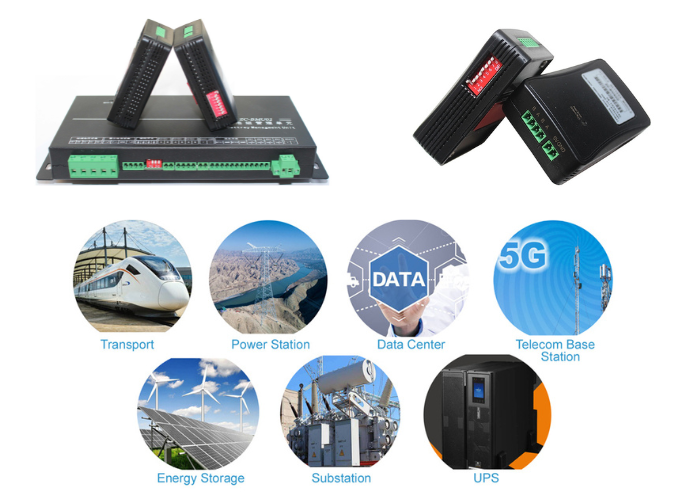

Get Price of Battery Tester
Get Price of Battery Tester
Address:
Floor 3, Building 1, No.1418-60, Moganshan road, Hangzhou city, Zhejiang Province, China.310015









